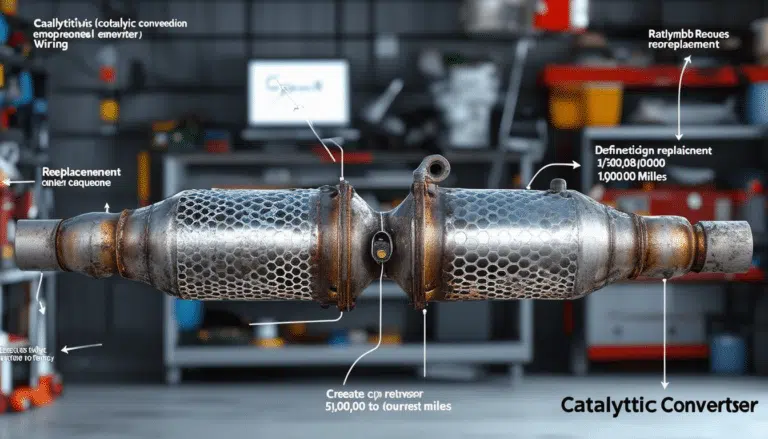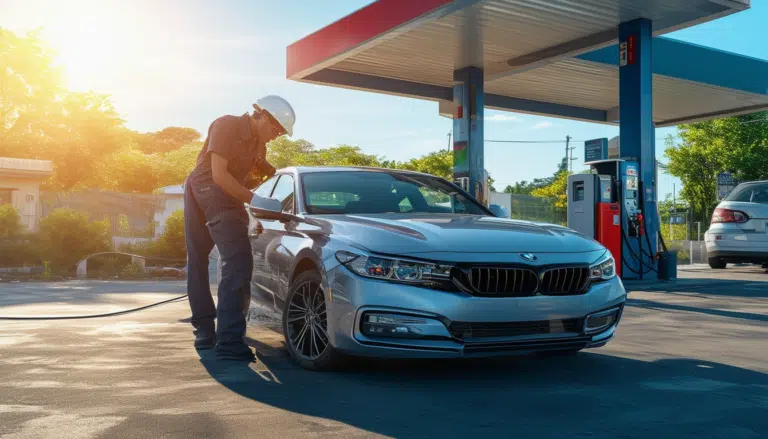Reduction of fuel expenditure: a goal for everyone
The reduction of fuel expenditure has become a crucial objective in the fight for a more sustainable future. In a world where resources are limited and concern for the environment grows daily, decreasing the consumption of fossil fuels not only benefits the economy but also promotes public health and social well-being. Adopting responsible practices in energy use is essential to ensure a healthy and prosperous living environment for all, marking a path toward greater energy efficiency and a cleaner environment.
The reduction of fuel expenditure has become a vital goal for today’s society, where resource scarcity and increasing concern for the environment lead us to seek more sustainable alternatives. This transformation not only impacts individual economies but also promotes a healthier and more balanced future for the planet. We will examine how this goal benefits everyone and the viable strategies to achieve it.
Economic benefits of reducing fuel expenditure
Reducing fuel consumption has a direct impact on the economy. By decreasing fuel expenditure, a greater amount of resources is freed up to be invested in other sectors, which can spur economic growth. Reducing energy bills also benefits families and businesses, allowing for greater flexibility in their budgets.
Environmental benefits
Fossil fuels are one of the main sources of pollution and climate change. By decreasing their use, we not only reduce greenhouse gas emissions but also improve air quality, leading to better public health. This change fosters the well-being of communities, protecting ecosystems and promoting a healthier environment.
Impact on the Sustainable Development Goals (SDGs)
The reduction of fuel expenditure is aligned with several of the Sustainable Development Goals established by the United Nations. SDG 7, which focuses on ensuring access to affordable and non-polluting energy, is particularly relevant. By adopting energy-saving practices, we contribute not only to this goal but also to improving the health and well-being of the population.
Sustainable strategies to reduce fuel consumption
There are multiple strategies that can be implemented to reduce fuel consumption. From promoting telecommuting and encouraging the use of public transportation to opting for electric vehicles and improving building efficiency. These measures help not only to decrease fuel expenditure but also to enhance the quality of life for individuals.
Government initiatives
Government policies play a crucial role in promoting the reduction of fuel expenditures. Programs that incentivize the use of renewable energy, create more efficient infrastructures, and implement regulations that limit the use of fossil fuels are essential. Actions like speed limit reductions and awareness campaigns are steps in the right direction.
Technological innovations
Technology is advancing rapidly and plays a fundamental role in reducing fuel consumption. The implementation of electric and hybrid vehicles, as well as improvements in engine efficiency, are just a few examples of how innovation can help achieve this goal. Additionally, the use of energy optimization technologies in buildings also offers a way to conserve energy and resources.
Community collaboration
The effort to reduce fuel expenditure must be a collective one. Collaboration between sectors, from citizens to businesses and governments, is essential to maximize the impact of initiatives. Car-sharing programs, promoting responsible consumption habits, and community campaigns on energy efficiency can have significant effects on reducing overall consumption.
Conclusions on the future of fuel expenditure
The path to reducing fuel expenditure is a journey that requires commitment and action from all sectors of society. With the use of renewable energy and the adoption of sustainable strategies, it is possible to move toward a cleaner, more efficient future. The sum of small individual efforts can create a significant collective impact, driving the shift toward a more sustainable and responsible economy.
The reduction of fuel expenditure has emerged as a key objective for sustainable development in our contemporary society. With rising fuel prices and increasing concern over environmental impact, it is crucial that both individuals and enterprises adopt practices that promote energy efficiency. This not only guarantees significant economic savings but also contributes to the preservation of the environment.
One of the most effective ways to achieve this reduction is through the implementation of sustainable strategies. This includes promoting telecommuting, optimizing travel, and using electric vehicles. By doing so, we not only reduce fossil fuel consumption but also improve the quality of life for workers, allowing them to balance work and personal life. Additionally, government policies can be established to incentivize public transport and sustainable mobility.
Furthermore, awareness about responsible energy consumption is fundamental. Education about the importance of maintaining efficient vehicles and driving can generate a significant change in consumption habits. On the other hand, initiatives aimed at integrating renewable energy into our daily lives are essential to mitigate the use of traditional fuels.
Finally, it is imperative that this reduction in fuel expenditure is not seen as a burden, but as an opportunity to innovate and improve both economically and socially. Every small effort counts and, together, can lead to a significant change that benefits the entire community and the environment around us.






